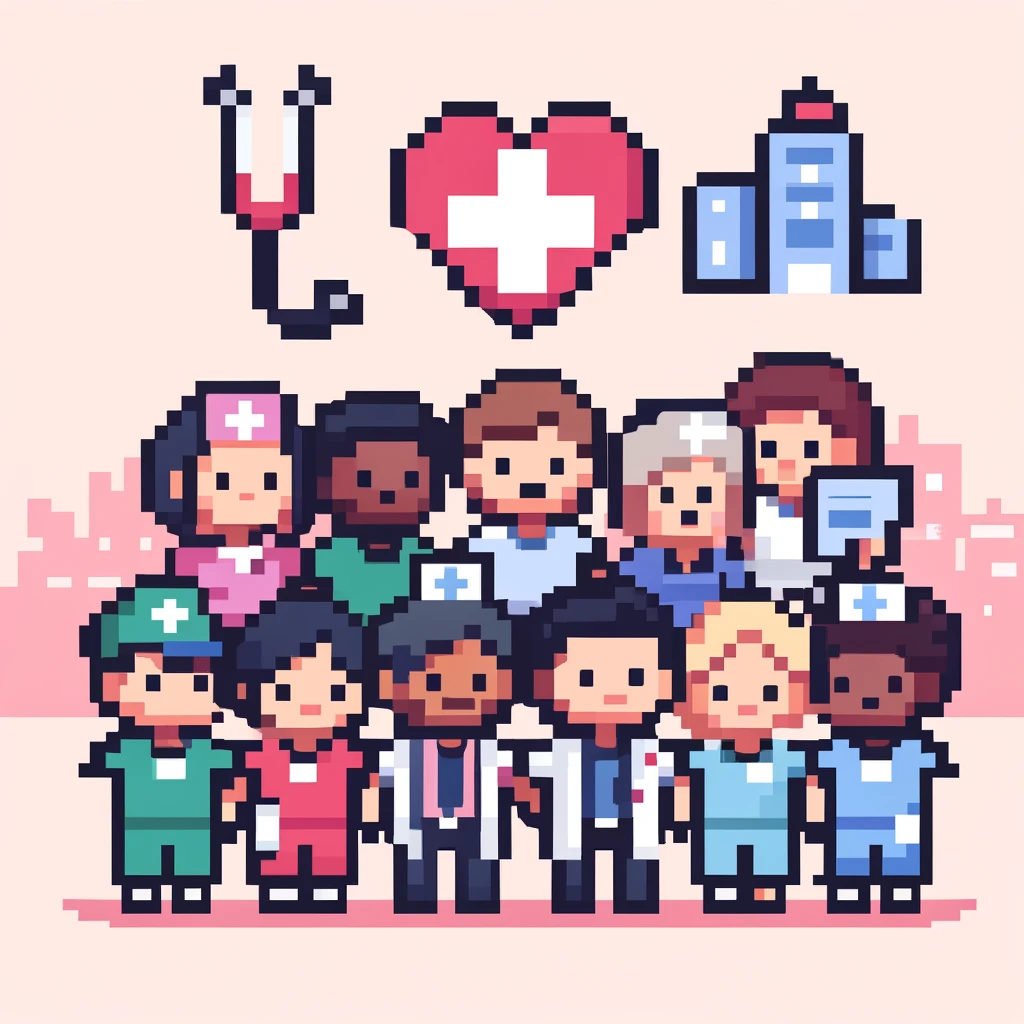
The Secrets of Inequality in Health and Care Workforce: A Pioneering Scoping Review
In our increasingly complex world, where healthcare demands are ever-growing, understanding the challenges faced by those at the frontline of medical care is more crucial than ever. A scoping review published in PLoS ONE by Aziz et al. sheds light on the inequalities experienced by health and care workers, aiming to enhance how we plan for and invest in human resources for health (HRH). This blog breaks down this intricate study for a general audience, underlining its significance and the urgent need for informed policy-making in health care.
The Heart of the Matter: Why Study HRH Inequalities?
Health and care workers are the backbone of health systems worldwide, critical for achieving goals like Universal Health Coverage (UHC). However, a variety of challenges—including supply shortages, skill mix imbalances, and unequal distribution—hamper the effectiveness of health services globally. These issues are exacerbated by deeper socioeconomic and cultural disparities that influence workforce dynamics, such as gender, race, and migration status.
The study by Aziz and colleagues is pioneering in its approach to systematically map out and understand these inequalities through extensive literature review. By identifying the kinds of inequalities health workers face and their underlying causes, this review aims to inform policies that could lead to more equitable health systems.
A Deep Dive into the Methodology
The methodology of this scoping review is meticulous and rigorous. The researchers utilized a framework provided by the Joanna Briggs Institute (JBI), which involves multiple stages:
- Identifying the Research Question: What inequalities do health and care workers face, what are their causes, and what are their outcomes?
- Identifying Relevant Studies: Databases like PubMed (hat tip), CINAHL Ultimate, Web of Science, and SCOPUS were scoured for relevant literature.
- Study Selection and Data Charting: Studies were carefully selected and data charted to ensure comprehensive coverage of the topic.
- Collating, Summarising, and Reporting Results: Descriptive analysis was performed to summarize the findings effectively.
This method ensures a thorough exploration of existing literature, providing a clear picture of where gaps in our understanding remain.
The Impact of Inequality
The preliminary findings of this review reveal that many health and care workers face significant barriers due to systemic inequalities. These inequalities are not just numbers on a page; they represent real-world barriers that significantly impede the professional and personal lives of individuals dedicated to caring for our health.
Manifestations of Inequality
Inequality in the health care sector can manifest in several impactful ways:
- Discrimination: This can occur on various grounds, including gender, race, ethnicity, and socioeconomic status. Discrimination might be evident in hiring practices, pay disparities, or unequal access to training and development opportunities, which can affect the morale and efficiency of the workforce.
- Career Progression: Another significant issue is the stagnation in career progression for certain groups of health workers. This could be due to overt or systemic biases that favor certain demographics over others, or structural barriers that limit opportunities for advancement for people from diverse backgrounds.
- Mental and Physical Health Impacts: Perhaps one of the most concerning aspects of these inequalities is their effect on the mental and physical health of health workers. Chronic stress, burnout, and the feeling of being undervalued can lead to mental health issues such as depression and anxiety. Physically, the demands of the job can become more challenging without adequate support, leading to fatigue and other health problems.
The Importance of Understanding These Issues
Understanding these multifaceted issues is vital for several reasons:
- Policy Development: Insights into the nature and effects of these inequalities can inform more equitable policy development, ensuring that health care systems become more inclusive and supportive environments.
- Resource Allocation: Recognizing where inequalities exist helps in directing resources more effectively, ensuring that all health workers have access to the tools and support they need to thrive professionally and personally.
- Training and Education: Education and training programs can be designed to address specific needs and gaps, focusing on fostering an environment of respect and equality within the workforce.
- Health Worker Retention: Improving the quality of life and job satisfaction for health workers can lead to better retention rates. Satisfied and supported health workers are less likely to leave the profession, leading to more stable health care systems.
- Overall Healthcare Improvement: Ultimately, addressing these inequalities not only benefits health workers but also enhances the quality of care they provide. A workforce that feels valued and respected is more likely to perform better, leading to improved patient outcomes.
Why This Research Matters
The implications of this research are vast. By highlighting the specific challenges faced by health and care workers, policymakers can begin to devise more targeted interventions. This could lead to more effective HRH planning, improved health worker retention, and ultimately, better health outcomes for all.
Towards a Healthier Future
The study’s approach to mapping existing literature and identifying gaps is a vital step towards more informed and effective health system policies. It emphasizes the importance of considering not just the numbers but the human elements within the health workforce. As this scoping review progresses, its findings will likely become a cornerstone for future HRH research and policy-making.
Engage with Us!
We’d love to hear your thoughts on this crucial topic. Do you have experiences or ideas related to health workforce inequalities? Share them in the comments below!
Join the Movement of Health Innovators – Subscribe for Weekly Insights!
Step into the forefront of public health innovation with ‘This Week in Public Health.’ Every edition brings you closer to the latest developments in research, community health, and advocacy. It’s more than a newsletter – it’s your resource for becoming an informed and active participant in the health community. Subscribe for free and join a network of individuals dedicated to making a lasting impact in public health!
About the Author
Jon Scaccia, with a Ph.D. in clinical-community psychology and a research fellowship at the US Department of Health and Human Services with expertise in public health systems and quality programs. He specializes in implementing innovative, data-informed strategies to enhance community health and development. Jon helped develop the R=MC² readiness model, which aids organizations in effectively navigating change.



